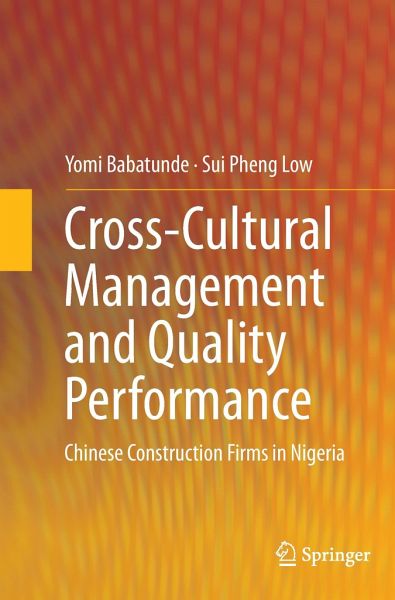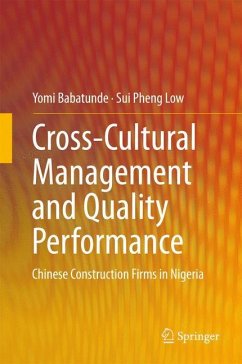
Cross-Cultural Management and Quality Performance
Chinese Construction Firms in Nigeria
Versandkostenfrei!
Versandfertig in 6-10 Tagen
76,99 €
inkl. MwSt.
Weitere Ausgaben:

PAYBACK Punkte
38 °P sammeln!
This book explores China's global competitiveness in the building of infrastructures with a particular interest in the resource-rich African countries. The book begins with a comprehensive literature review on total quality management (TQM) and national culture, followed by reviews of the construction industries in China and Nigeria. This provides better understanding of the linkages between TQM, based on the International Organization for Standardization's ISO 9000 quality management systems (QMS), and national culture, based on Emeritus Professor Geert Hofstede's national cultural dimensions...
This book explores China's global competitiveness in the building of infrastructures with a particular interest in the resource-rich African countries. The book begins with a comprehensive literature review on total quality management (TQM) and national culture, followed by reviews of the construction industries in China and Nigeria. This provides better understanding of the linkages between TQM, based on the International Organization for Standardization's ISO 9000 quality management systems (QMS), and national culture, based on Emeritus Professor Geert Hofstede's national cultural dimensions. Premised on the culture-specificity and bi-directionality relationships between TQM and national culture, this book investigates the construction industries in China and Nigeria including their strengths, weaknesses, opportunities, and threats (SWOT) as well as an appraisal of their historical and emerging relationships. In its conceptual approach, this book presents different models in the lead up to its primary theoretical contribution of a quality management assessment model (QMAM) that was adopted during the study's field work. The book also presents relevant lessons relating to cross cultural management and quality performance not only to the Nigerians but also other foreign players in Nigeria's construction industry.














